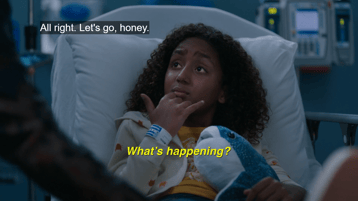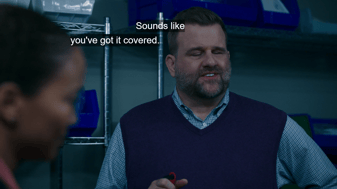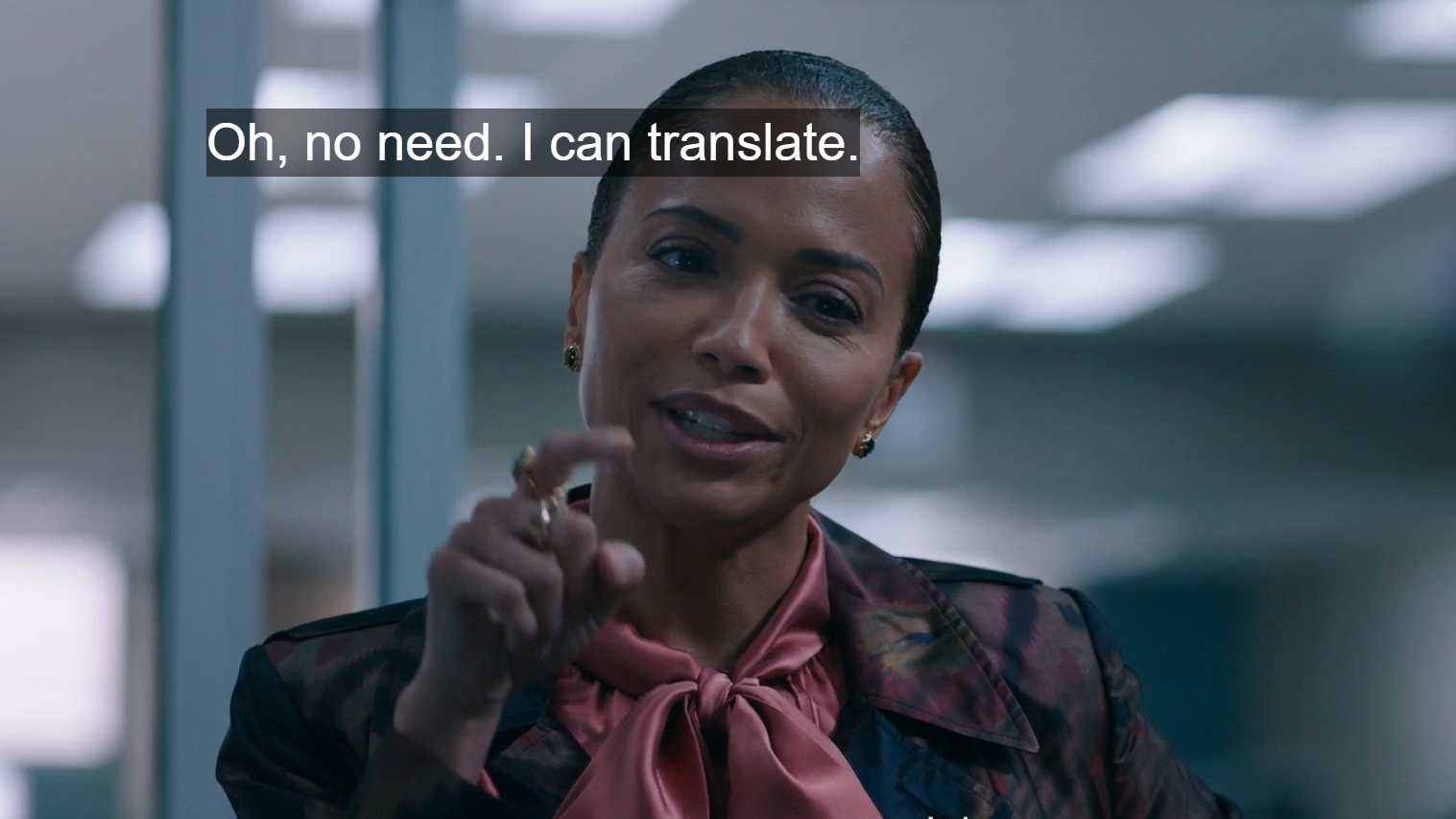SPOILER WARNING: This article goes over episode 6 of the sixth season of "The Resident"
I write this as I watch the October 25th episode of "The Resident" on Fox.
The episode involves a storyline in which a Deaf child and hearing Mom go to the hospital because the daughter is ill and found to be suffering from liver failure. The mother wants to donate part of her liver but has a heart valve issue.
For most, this is the drama that is unfolding. But as a seasoned Sign Language interpreter, there is more. So much more.
Interpreters & Communication

Upon arrival at the hospital, the mother interprets for the daughter and is offered an interpreter but refuses services and states that Interpreters usually can't keep up with her daughter. The Mom says the daughter can lipread and is excellent at it.
Later, the mother has emotionally charged conversations in the room in front of the daughter, so the daughter knows something serious is happening. The daughter asks her mother to tell her what is happening and is told that she will be informed later. After that, the mother continues to talk to people in the room.
I understand, as a parent, wanting to control situations that involve your child. You want to ensure they have the best life and possibilities. However, in this situation, if it were real life, you would be creating more fear by limiting communication and, in fact, eliminating communication. Leave the room if you want to have a conversation, and do not include someone. Don't use their deafness to keep them alienated from your discussion. People can read your body language and facial expressions.
Interpreters are not there to limit your ability to spend time with your family member or to be a parent. It's just the opposite. If they are doing their job, interpreters should give you the freedom to be a parent or guardian or caring family member. Interpreters should be looked at as a way to give a person who doesn't speak the language or hear the freedom and independence to make their own choices and to communicate on their own.
 Lip reading is not an exact science. Lips make up 40% of English, and half of the lip movements look exactly the same (say I love you and olive juice, they look the same and feel the same). 60% of English is formed in the back of the throat and is not visible. So lip reading is a lot of guesswork.
Lip reading is not an exact science. Lips make up 40% of English, and half of the lip movements look exactly the same (say I love you and olive juice, they look the same and feel the same). 60% of English is formed in the back of the throat and is not visible. So lip reading is a lot of guesswork.
Communication is a Right, not a Privilege.
At the show's end, both Mother and Daughter were in the recovery room, and both were just out of surgery, so they were unconscious. The staff wanted to go to a wedding. One staff member knew a limited amount of Sign Language. She said she would stay with the daughter and wait for her to wake up. Another staff member said, "You don't have to. We can get an Interpreter". The woman who knew a little Sign said, "you know it's impossible to get an interpreter at this time of night." As an interpreter and agency owner, this infuriates me. Interpreters work 24 hours a day, 365 days a year. We understand that we will be called at all hours of the day and night. While it may be easier at some times of the day to get people to work than others, it is never appropriate to use someone who knows a few signs and not even try to obtain a professional Interpreter.

What disgusts me the most about this episode is their disregard for the importance of communication. It doesn't matter how old you are; your right to effective communication is as crucial at five years old, ten years old, 17 years old, or older. This show also diminishes the importance of Interpreters and makes our job seem unimportant and that we are less than skilled.
Sign Language Interpreters work very hard, continuously seek training, and have a Code of Professional Conduct they adhere to. We are put in some of the most challenging situations and maintain the most professional decorum. Many of my colleagues were on the front lines during COVID and worked tirelessly to ensure effective communication while under great emotional stress.
Conclusion
I'll get off my soapbox; perhaps the writers didn't do their homework. I hope that in the future, with all the good press that the Deaf Community and Interpreters have been getting, staff will ask questions and do some research before completing a storyline. There is so much available that will educate people about what is and is not appropriate; it doesn't take much time to figure it out.




